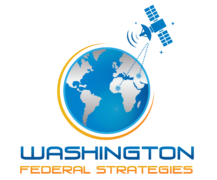“Shouldn’t we keep our regulatory compliance and experimental licensing needs in-house?” says every space innovation company, at some point. If you’ve ever said that, read on.
It’s easy for an innovation company to assume that with enough smart and highly technical people on staff, and often limited funding, that they can handle their own experimental licensing and spectrum management. After all, a staff-person in house, especially one of the engineers who helped develop the product, knows the technology, and all its specs, and it’s purpose and requirements, better than anyone else. How hard can it be to set them to work in getting experimental licensing, going through the regulatory hoops, armed with complete knowledge of their innovation?
In our three decades in business, we have watched this myth get debunked time and time again. When you look at the FCC’s “denied application page” you will see a graveyard of licenses that could’ve been granted if one T had been crossed, or one I dotted. After all, it’s not an engineer’s job to know all the things that will trip you up in the licensure process.
Those can only be learned by tripping on them, which fortunately and unfortunately, we have seen over and over. We have many clients who do have an in-house dedicated licensing and spectrum management staff, and they rely on us as expert council, to help train their staff, or double check their licensure applications, to keep their projects on track for a successful launch through the regulatory hoops, and beyond.

Here are the top 5 reasons companies outsource regulatory compliance and licensing:
- MORE HANDS:
Your engineers and product development team know every layer of technical detail on your project. You are ready to run the big experiment. The antennae you’ve designed, the satellite you’ve pioneered is engineered to perfection… But where do you test it? What licenses do you need to run your experiment? When the engineers turn their focus from innovating to being the licensing manager, how does that impact your technology roadmap? Do they know all the angles to consider, the bands to apply for, and how the FCC comes at its approval processes? When you have professionals in your corner with decades of licensure experience, you get a whole team of hands and brains; you have more resources, more sets of eyes that know the ins- and outs- of the regulatory process, and more experience to pull from; For much less than it would cost to pay your employee to shift focus to licensure, you get a whole department to show them the ropes, and the peace of mind knowing that your application will make it through and you won’t lose months of development time. - RESPONSIVENESS:
Pushing technical projects through the regulatory process is quirky, and has specific and very strict milestones. If you time out, you’re starting over, having wasted months and even years of development. We see it all the time – you have 30 days to counter a request from the FCC, and it slips through the cracks because, either you don’t know the answer and don’t know how to get it, or you have too much on your plate and it falls off your radar. You get smacked with the bright red stamp that says “denied”, and you have to start your licensure process over. Considering how much 6 months of wasted time will cost you, you are now up a creek. By the nature of the job, if you are put in the position to be reactive, day in and day out, you spend time spinning your wheels instead of innovating. When your regulatory clearance is outsourced, you shift out of the role of being responsible for timelines and milestones and arduous paperwork, and you get back to innovating. - MORE COST EFFECTIVE:
Calculate the on-average six-figure salary for your technical resources, add in the cost of health insurance and benefits, you’re looking at a huge chunk of your often limited grant money, investment funding, etc. Not to mention, that takes a ding out of your headcount, and requires an extra office, another workstation (or 3) and adds significantly to your overhead. Even our biggest, most VIP space innovation clients, save significant time and money by letting experts handle the licensure and spectrum management. Efficiencies of scale are tapped into when you have legal experts who have worked with the FCC and regulatory agencies for decades, and know the backdoor strategies. Keeping your project on track, and your budget in check, becomes the number one priority for your outsourced agent. - EXPERIENCE:
Due to the constantly evolving nature of the regulatory world, to keep your staff up to date takes an ongoing commitment to continued research. Regulatory compliance and spectrum management is an art and a science, and based on the highly technical nature of the niche, a diverse pool of experiences goes a long way in knowledge transfer and keeping experimental licensure on track for success. Plus having an extended network of industry professionals, a good space law entity will have personal contacts within all the regulatory agencies. - DIVERSE SKILLS:
There’s something to be said for combined years of service and experience. Having worked in-house for the FCC, and global regulatory agencies, our team for example, has access to libraries of experience in the ins-and-outs of getting space innovations launched, so when a client runs into an obstacle, we can pull from our team’s collective specialties to get answers and solutions. Unlike a one man show who burns candles at both ends, we get exposure to a broad set of trends going on in the regulatory and technology world, and we apply that knowledge to get your projects licensed more quickly and with fewer costs.
Now that you understand the pros of outsourcing your regulatory clearance and licensure for your experimental projects, we’d love to chat. Free consult, no strings attached. Reach out to us at anne@washingtonfederalstrategies.com and learn why some of the biggest innovation companies, from BlueHalo to Raytheon, have trusted us for three decades with their licensure, spectrum management, and regulatory success.


